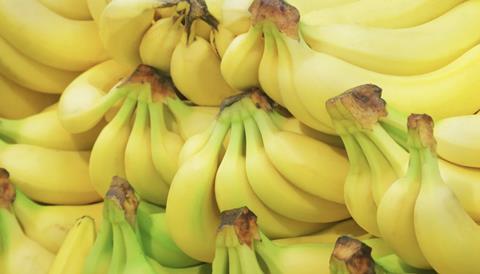Geopolitical tensions blamed as imports from the Philippines drop 49 per cent year-on-year to 255,636 tonnes

China has cut back on banana imports from the Philippines amid rising geopolitical tensions in the West Philippine Sea, according to reporting from The Philippine Star.
As of the end of July, imports had dropped 49 per cent year-on-year to 255,636 tonnes, based on International Trade Centre (ITC) data.
The dip also meant the Philippines’ share of China’s banana market fell to 24.53 per cent compared to 37.49 per cent during the same seven-month period the year prior.
As a result, Vietnam has, for the first time, overtaken the Philippines as the top banana supplier to China.
According to The Philippine Star, Vietnam’s banana exports to China expanded by 19 per cent year-on-year to 438,573 tonnes and the country now holds 42 per cent market share, up from 33 per cent from the January to July period in 2023.
The Pilipino Banana Growers and Exporters Association (PBGEA) cited geopolitical tensions between the countries as an important factor in shipment numbers.
“Geopolitical policies definitely play a very important role in economic statecraft,” PBGEA executive director, Stephen Antig said. “Based on past experiences, the industry always suffers collateral damage whenever there is tension in the West Philippine Sea.”
Antig added that the “volatile” spotpricing mechanism of China’s banana market also discouraged growers from exporting there as most producers prefer long-term contracts to have more secured profits.
Marie Annette Dacul, executive director of University of Asia and the Pacific Center for Food and Agri Business, agreed with the position.
“Political relations also impact trade relations,” Dacul told the Philippine daily. “Anything that causes one to lose market share is a cause for concern.”
The drop in exports compounds production challenges already facing Philippine banana growers, including high production costs, pests and diseases, logistical problems and weather disturbances. The country is also facing mounting competition with neighbouring supplying nations Vietnam, Cambodia and now even Laos, according to The Philippine Star.
“These countries have ramped up their production capabilities and have been able to offer lower prices which had made their bananas more attractive in key markets like China and Japan,” agriculture undersecretary, Cheryl Marie Natividad-Caballero told the publication.
All of this comes as the Philippines loses substantial market share in Korea, dropping from 70 per cent in January to August in 2023 to 60 per cent in the same period this year, according to ITC data.



